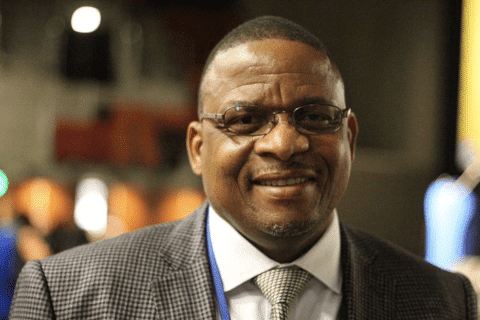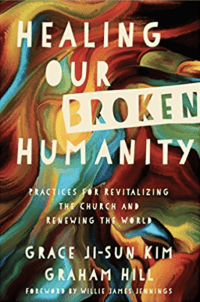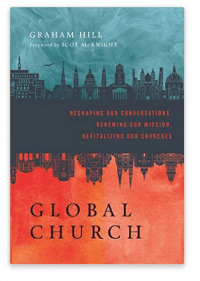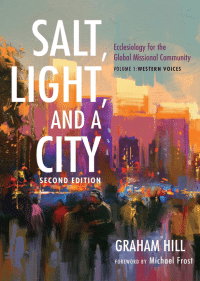A review of Healing Our Broken Humanity (Reviewed by Ngwedla Paul Msiza, President, Baptist World Alliance)

Review of “Healing Our Broken Humanity” by Grace Ji-Sun Kim and Graham Hill
Reviewed by Ngwedla Paul Msiza (President, Baptist World Alliance)
People like me who were born and raised in a country like South Africa – where racism, nationalism, and misogyny were legalized by the constitution and the laws of the country – have a deep understanding and painful experience of being dehumanized. There is a deep pain of living in a society characterized by broken relationships and humanity.
My experiences, and that of my fellow South Africans, is the experience of many people of the world. The truth is that we have not made any significant progress to address these ills that have destroyed and distorted our humanity from what God has intended for us to be. The sudden resurgence of racism in all its form is not surprising. This is a wake-up call to us all, indicating that we need to work together in the fight to end all forms of injustice, and to begin a healing process within our communities.
This marvelous book is a practical and relevant resource that will help the church work with God to build renewed communities based on the new humanity in Christ. It will empower Christians to deal with the problem of racism and all forms of injustice. This book emphasizes the importance of corporate expressions of pain, grief, repentance, and lament. This comes at a time when the world is faced with fresh upheavals of tensions and resurgence of racism, nationalism, and white supremacy. I commend this book to all pastors and churches that are looking to equip the saints to face the challenges of racism, misogyny, nationalism, tribalism, and any other form of injustice.
This marvellous book “Healing Our Broken Humanity: Practices for Revitalizing the Church and Renewing the World” by Graham Hill and Grace Ji-Sun Kim is one of the most practical and relevant resources I have ever seen, for helping the church to work with God to build and renew neighborhoods and communities. 
The book challenges the church to work towards a renewed community that is based on “the new humanity in Jesus Christ”. This book is a resource that will empower Christians to deal with this problem of racism and sexism and all forms injustice. The approach that Grace and Graham use in this book touches the very deep roots of injustice, which is the challenge that we face even today in the 21stcentury.
The book points out and challenges ideas, structures, and issues that have become sacred cows and systems that maintain and justify racism and injustices in the world. Grace and Graham mention these sacred cows and systemic oppressions and evils as the place where we need to begin our journey towards healing our broken humanity.
One of the most important points mentioned in this book is in Chapter 2, “Renewing Lament.” Grace and Graham say: “Lament is a demonstrative, strong and corporate expression of grief, pain, sorrow and regret. Lament and repentance deal with issues of the heart. They pave way for outer change.” The message conveyed here it that we can only begin the journey towards healing of our broken humanity when communities stand together, and confront, without reservation, the evil of injustices, and the pain and sorrow that is caused by it. We find solidarity, compassion, strength, and hope as we repent.
One of the challenges in the dealing with the healing of broken humanity is that perpetrators of injustices, in most cases, do not want to accept responsibility and own up to the damage caused by their behaviour and actions. The perpetrators do not want to talk about the evil of oppression or even to listen to the pain of the victims. This acknowledgment of responsibility was what the Truth and Reconciliation Commission in South Africa tried to achieve. However, the perpetrators often refuse to acknowledge their guilt, and they expect nations and peoples to move forward without dealing with the pain and sorrow. The perpetrators want the world to understand their reasons for having behaved unjustly towards other human beings, and that means they still want to worship at that shrines of racism, tribalism, gender-violence, nationalism, or patriarchal domination. Grace and Graham’s book emphasises the importance of corporate expressions of pain, grief, and repentance, under the theme of “renewing lament.” Renewing lament starts with the church, but must also eventually involve the whole community, including the perpetrators and the victims.
The other vital point that Grace and Graham raise is the misconception that there are superior cultures. The hope of a renewed humanity is God’s new community. This new people – the people of God – understand that everyone has equal status and all cultures are equal. One of the most powerful and destructive misconceptions today is the idea that certain cultures are holy and godly while others remain inferior, unholy, and ungodly. This racist idea has created what the authors call “Religious patriotism which confuses patriotic fervour with Christian discipleship.” In many instances, this has been interpreted to mean that being white – or coming from a predominantly white nation – makes one a Christian or a disciple of Christ, while being black or brown means one is inferior, a heathen, or an unbeliever. These ideas are shrines to idols that must be demolished because they are the seed of internalized and expressed racism.
Another good point about this book is that it provides practical steps for Bible study groups in churches. It is not just an excellent book for reading and reflection – it calls for action on the part the church. It helps to inspire discipline and focus for study groups because it has well-structured outlines for groups to follow. I encourage churches to use this material as a small group and Bible Study resource.
Finally, the diverse background of the two authors helps to provide a more balance approach to the subject matter. I think the book is relevant and insightful as a result of the diverse backgrounds of the two authors.
Grace and Graham have released this book at a time when the world is faced with fresh upheavals of tensions and conflict that are as a result of the resurgence of racism, sexism, nationalism, and promotion of white supremacy. Now is the time for the church to rise up and face the evil that is destroying the world and afflicting God’s people.
I commend this book to all pastors and churches that are seriously looking for a relevant resource that can be used to equip the saints to address the challenges of racism, misogyny, nationalism, tribalism, white supremacy, and any other form of injustice. This is a timely and excellent resource that can help our churches as we seek to rebuild our communities, and as well work towards healing our broken humanity.
Ngwedla Paul Msiza
President, Baptist World Alliance
Pretoria, South Africa
The Baptist World Alliance is a worldwide movement of over 48 million baptised believers, in 170,000 churches, in more than 200 countries.
Buy your copy of Healing Our Broken Humanity HERE
What Others Are Saying About This Book
“God wants to transform our broken world with radical love and justice. Grace Ji-Sun Kim and Graham Hill show us practical, life-giving ways that the church can help God’s will be done on earth as it is in heaven.” (Jacqui Lewis, Senior Minister at Middle Collegiate Church)
“Healing Our Broken Humanity isn’t so much a banquet as it is a big tasting plate, introducing us to a rich set of practices, rooted in the missional, contemplative, and progressive traditions of the church. Kim and Hill have packed their short book with such a vast array of ideas, resources, and stories, the reader’s appetite to learn more and put it all into practice is thoroughly piqued―a wonderful introduction to the field.” (Michael Frost, author of To Alter Your World and Surprise the World!)
“There are many books dealing with diversity and reconciliation. Of all those books, including my own, I believe Healing Our Broken Humanity is the most relevant, hands-on, how-to manual on the subject you will encounter! Grace and Graham draw you into practical application from the earliest pages and they never let go. Regardless of whether you have been seeking ways to do the gospel in the midst of present brokenness or have become somewhat jaded to the theorizing of it, Healing Our Broken Humanity will not disappoint. Written by two powerfully seasoned and wise mentors, they have found the missing link on this subject that everyone and every church should read. Healing Our Broken Humanity lives up to its subtitle, Practices for Revitalizing the Church and Renewing the World, and what could be better than that?” (Randy S. Woodley, author of Shalom and the Community of Creation: An Indigenous Vision)
“In these pages two voices that I respect harmonize beautifully to sing of what the church can be. Part road map for forming a community in the healing purposes of God, part primer on intersectional theology, part Bible study on how justice is at the centre of following Jesus, this book is wholly about the practices that make us a people who live together more like Jesus (and less like jerks).” (Jarrod McKenna, cofounder of the #LoveMakesAWay movement and #FirstHomeProject for refugees)
“Kim and Hill have marvelously provided what the church needs today: a road map for ways Christians can contribute to the common good and accordingly aid in the transformation of the world. Healing Our Broken Humanity is biblically grounded, sensitive to context, and eminently practical, as each chapter ends with concrete suggestions for ‘practices, challenges, and activities for small groups’ to move all those who encounter their book to immediate action. I heartily commend this book to all justice-seeking Christians.” (Grace Yia-Hei Kao, associate professor of ethics at Claremont School of Theology, codirector at Center for Sexuality, Gender, and Religion)
“Kim and Hill in this courageous book are not simply offering us another account of Christian practices, but Christian practices that necessitate diverse communities for their performance. The crucial matter today for Christian discipleship is not what you practice but who you practice with. . . . If through our practices we follow Jesus into the depths of the world, then we will learn that the healing we all seek for ourselves and our world is offered to us not in our own strength but in God’s power, if only we would seek it together.” (From the foreword by Willie James Jennings, Yale Divinity School)
“The reality of a broken humanity is fundamental to a Christian understanding of the world. The temptation would be to simply offer a diagnostic that is a litany of lament over a fallen world. In this text, Kim and Hill not only offer an appropriate analysis, but also a Christian justice ethic that engages a theological depth and breadth. They also offer practical, real-life ways to put these principles into practice. For those who seek to revitalize and renew an active Christian faith, this book offers not a simple how-to guide, but a genuine, deep, significant, practical resource for the church.” (Soong-Chan Rah, professor of church growth and evangelism at North Park Theological Seminary, author of Many Colors and The Next Evangelicalism)
“In Healing Our Broken Humanity, two authentic voices from two continents offer the Christian church practical reflections to renew our mission, lives, and world. This work touches on critical contemporary issues facing our communities, and offers individual and communal responses that make a difference.” (Joel Edwards, advocacy director for Christian Solidarity Worldwide, London)
“This book is a clarion call for all those who dream of a church that is whole, holy, and humble, a church that acknowledges its own failings and seeks justice, and a church that seeks to join those who hope for a better humanity. It will inspire those who eschew the pursuit of power so they may better amplify the voices of the powerless and those who believe in community. This is a superb, clear-eyed call for all of those who dream of a better church and world, to begin to work toward it, and draw strength from the transformative power of love. There can be no greater and more urgent work than this.” (Julia Baird, presenter on the Drum, columnist for the Sydney Morning Herald and the International New York Times)
“In this outstanding work―thought provoking, theologically sound, wonderfully practical, and comprehensive in scope―Grace Ji-Sun Kim and Graham Hill effectively synthesize and ultimately advance key tenets of varying mindsets and movements within the church today, all in pursuit of a common goal: disruptive innovation in the local church whereby it is repurposed and positioned to advance a credible witness of God’s love for all people in an increasingly diverse, globally connected, painfully polarized, and cynical society. Healing Our Broken Humanity is a thorough guide and inclusive playbook for pastors and parishioners alike seeking to engage the complexities of race, class, culture, gender, politics, and more, in a biblically accurate and informed way, and in so doing recognize that such things as lament, corporate repentance, reconciliation, and justice are not peripheral but intrinsic to the gospel.” (Mark DeYmaz, directional leader of Mosaic Church of Central Arkansas, president of Mosaix Global Network)
“This marvelous book is a practical and relevant resource that will help the church work with God to build renewed communities based on the new humanity in Christ. It will empower Christians to deal with the problem of racism and all forms of injustice. This book emphasizes the importance of corporate expressions of pain, grief, repentance, and lament. This comes at a time when the world is faced with fresh upheavals of tensions and resurgence of racism, nationalism, and white supremacy. I commend this book to all pastors and churches that are looking to equip the saints to face the challenges of racism, misogyny, nationalism, tribalism, and any other form of injustice.” (Ngwedla Paul Msiza, President of Baptist World Alliance, Pretoria, South Africa)
“There are plenty of reasons to throw our hands up in the air and walk away from the church. If we’re honest, many of us have experienced it as a neutered counterfeit to the life and community Jesus invited us to embody. In this book, Grace and Graham remind us who we have been called to be all along, a new humanity in Christ who actively participate in healing our broken world. Rich in theological thought and firmly rooted in tangible practice, they invite us to be liberated into a cross-shaped ministry that leads to the flourishing of all. This isn’t a church-growth strategy; it’s holy provocation guiding us onto a path of confession, repentance, and new life. May this book be read and lived!” (Jon Huckins, cofounding director of Global Immersion, author of Mending the Divides: Creative Love in a Conflicted World)
“This book is simply incredible. Goodness. So needed. I can’t wait to get this in our church bookstore. It is robust in theology, rich in ecclesiology, and practical in application. Grace Ji-Sun Kim and Graham Hill paint the glorious vision of the bride of Christ rooted in the grand narrative of Scripture. Grace and Graham brilliantly put feet on this so any local church can catch a vision for participation in the healing of broken humanity.” (Tara Beth Leach, author of Emboldened, senior pastor at First Church of the Nazarene of Pasadena)
Graham Hill
Graham Hill (PhD) teaches pastoral studies and applied theology at Morling College in Sydney, Australia. He is the Founding Director of The GlobalChurch Project – www.theglobalchurchproject.com. Graham has written 6 books. His latest three books are “Healing Our Broken Humanity: Practices for Revitalizing the Church and Renewing the World” (co-authored with Grace Ji-Sun Kim; InterVarsity Press, 2018), “GlobalChurch: Reshaping Our Conversations, Renewing Our Mission, Revitalizing Our Churches” (InterVarsity Press, 2016), and “Salt, Light, and a City, Second Edition: Ecclesiology for the Global Missional Community: Volume 1, Western Voices” (Cascade, 2017).
© 2018 Graham Hill. The Global Church Project. All rights reserved.
Want to be mentored?
Want to be mentored into a slower, deeper, and fuller discipleship, ministry, and life?
Books
Don’t forget to buy Graham Hill’s books:
- Global Church
- Salt, Light, and a City (second edition)
- Healing Our Broken Humanity



Comments: We’d love to hear your comments and reflections on this blog post!






